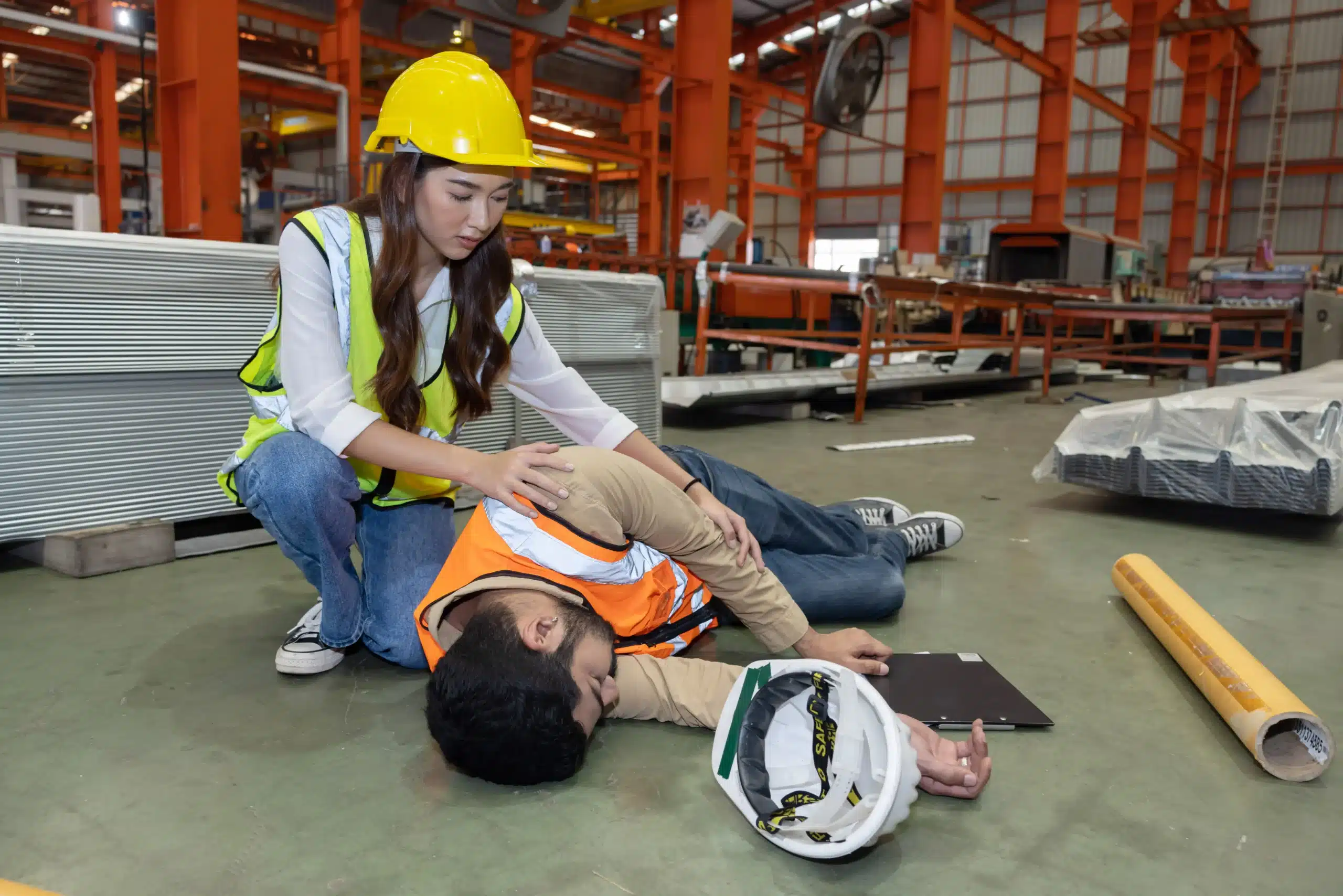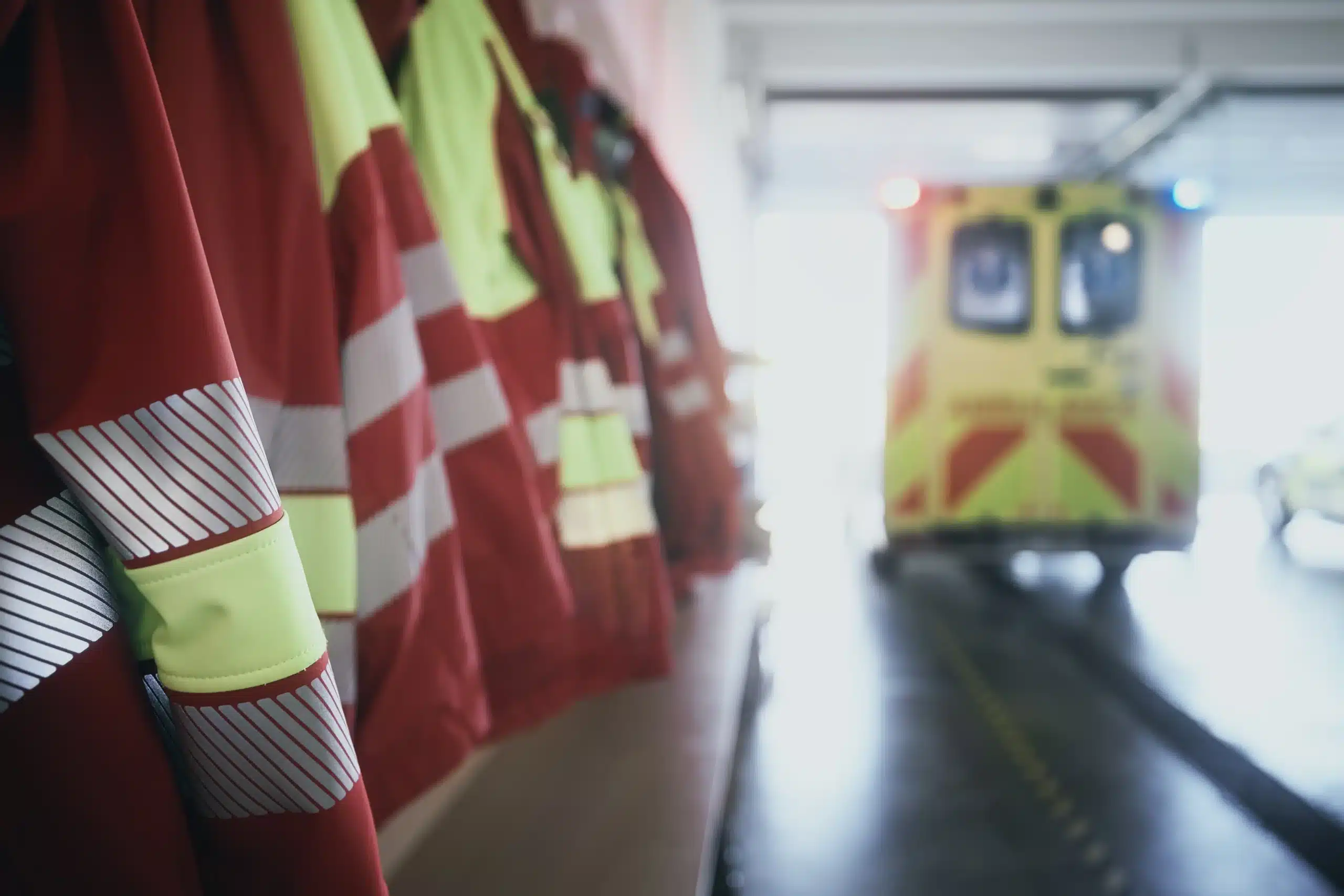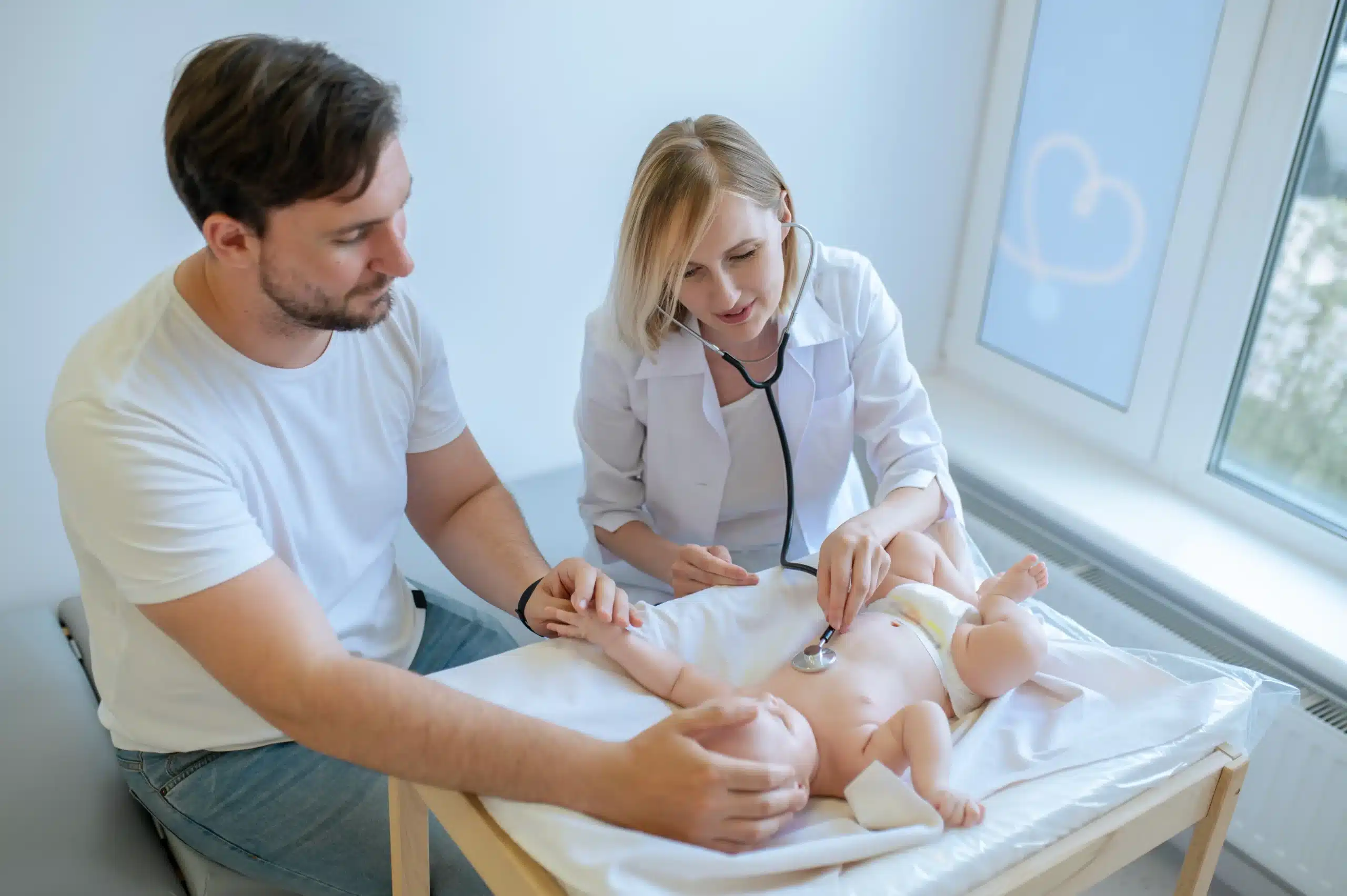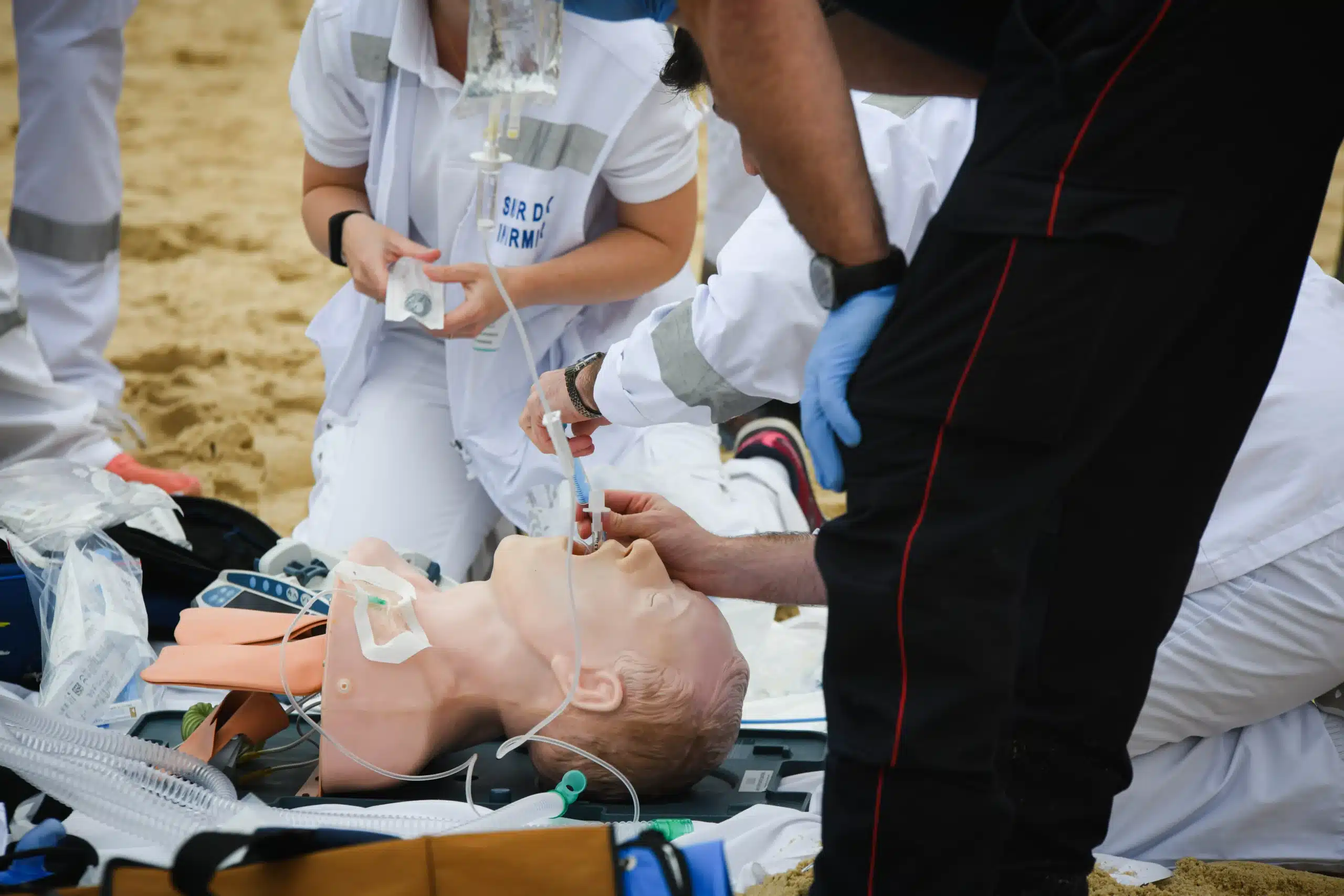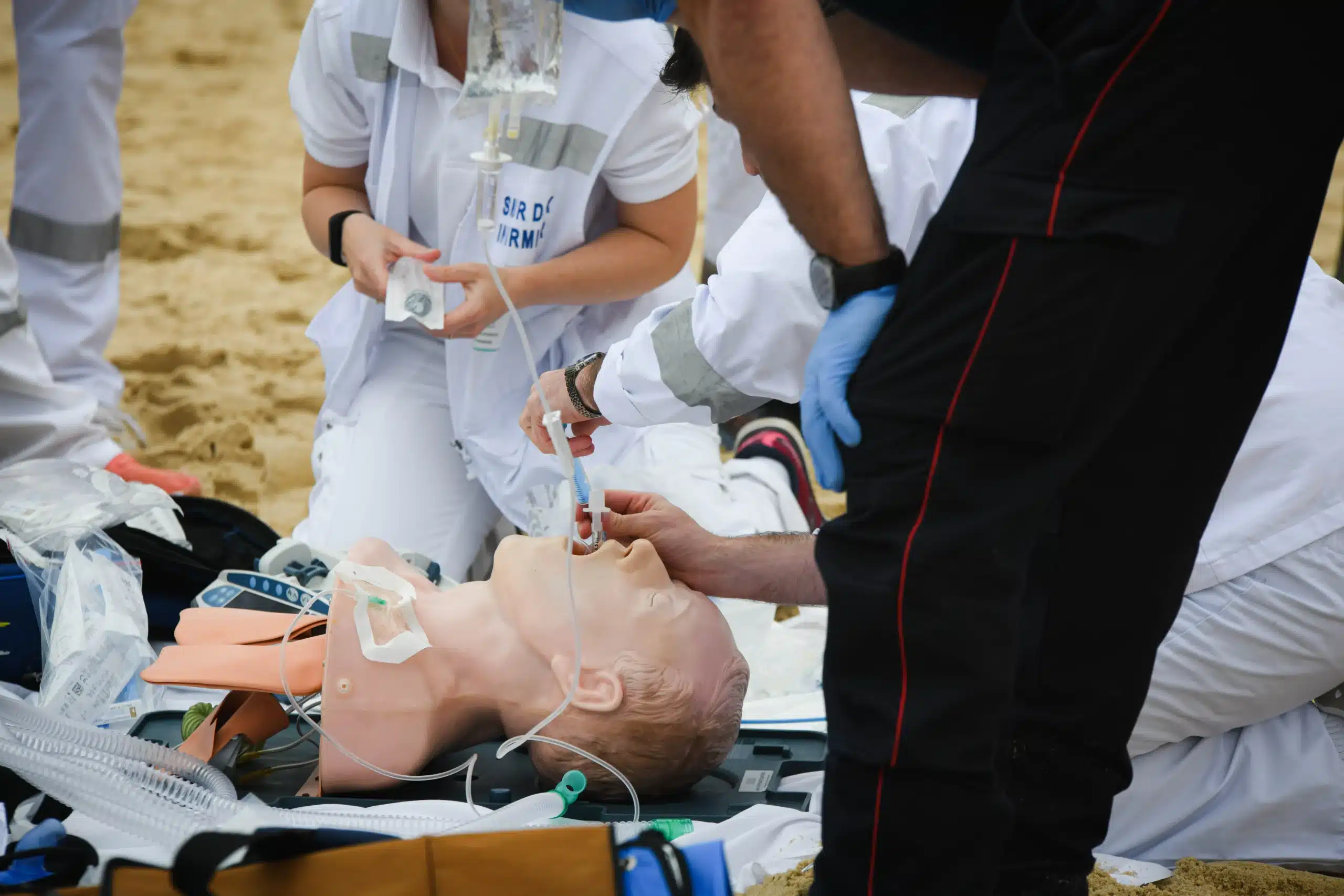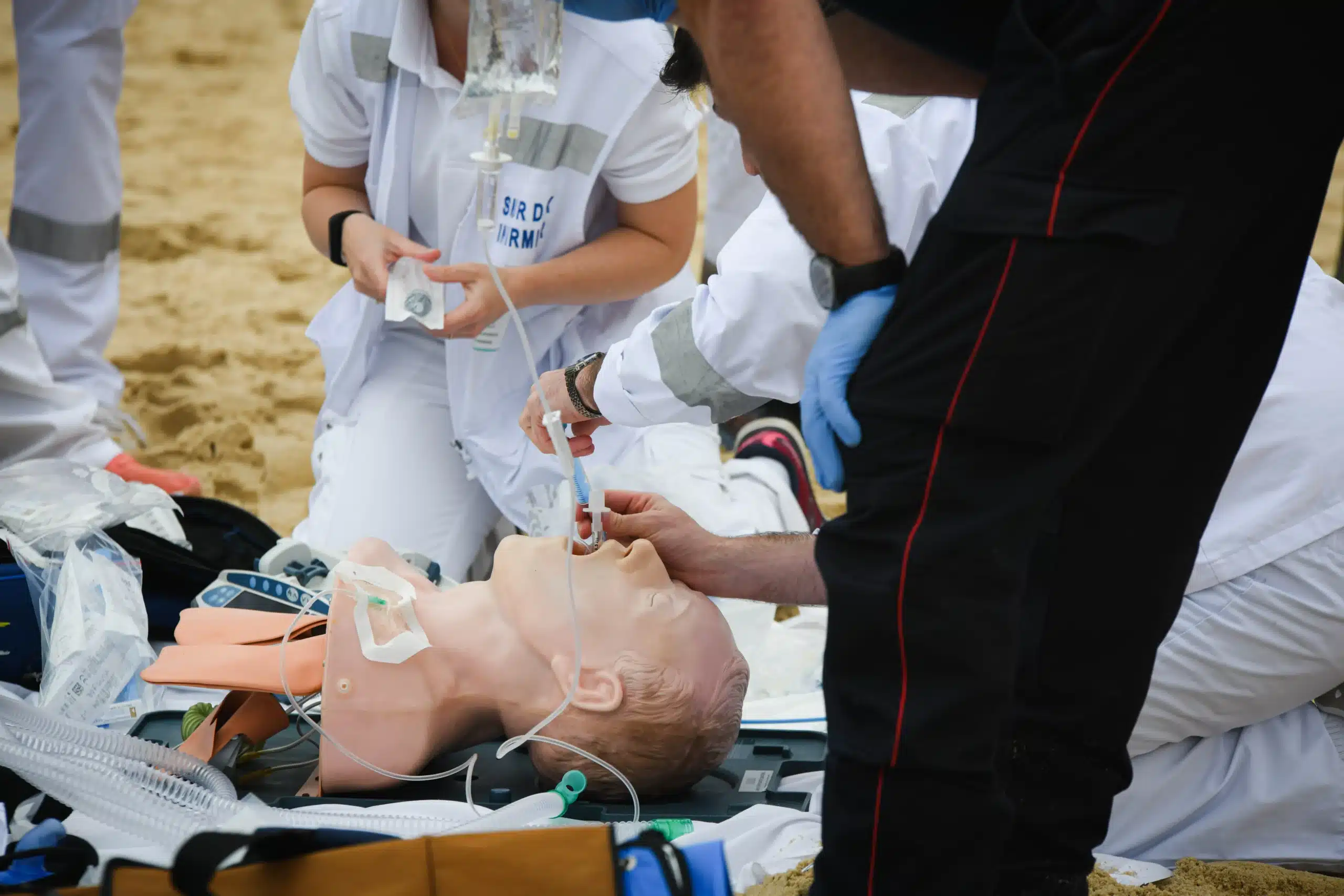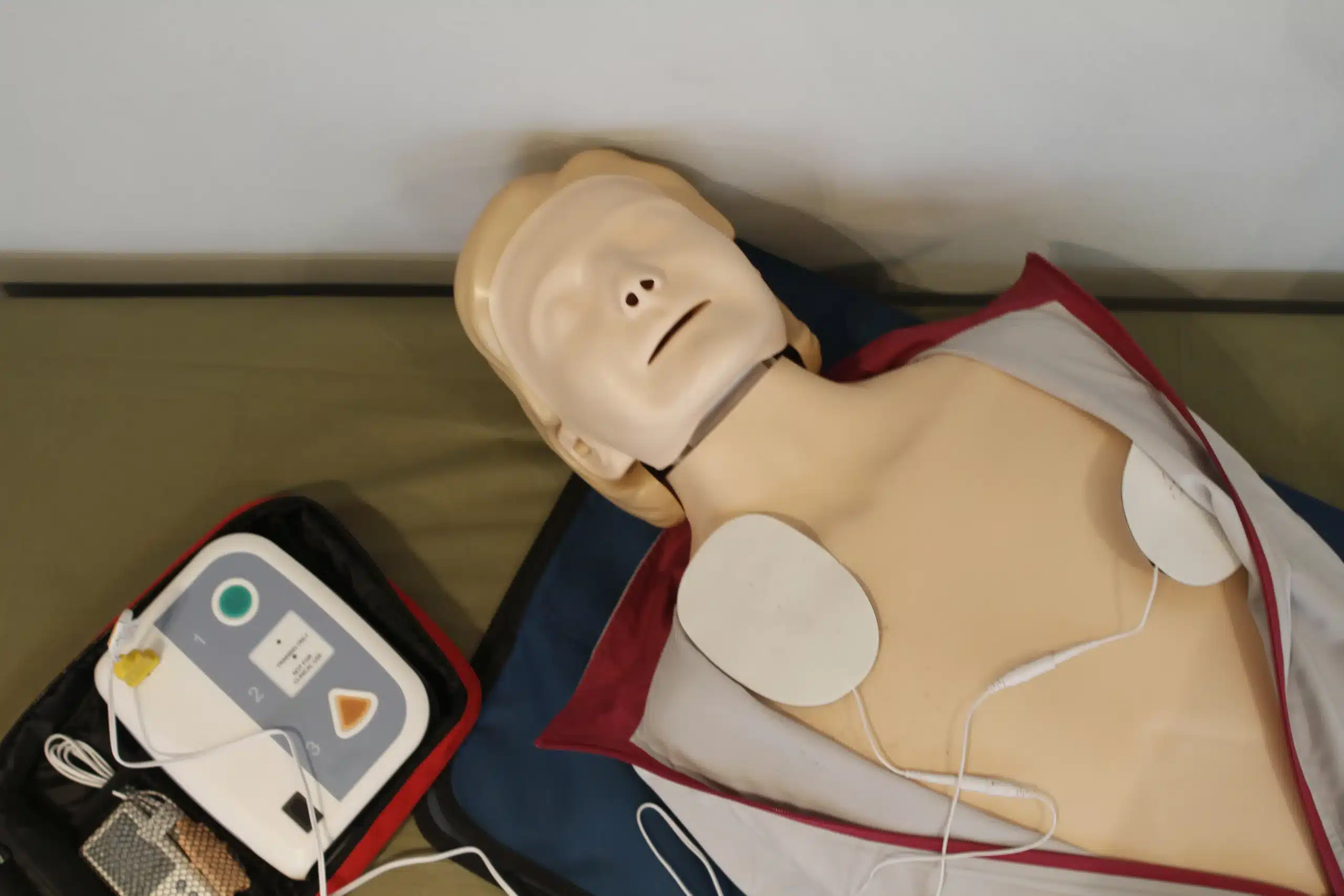Emergencies happen, and being prepared can make all the difference. CPR renewal in Pleasanton is more than just a requirement; it’s an investment in your ability to respond effectively in critical situations. This guide provides a comprehensive overview of CPR renewal in Pleasanton, covering everything from the types of courses available to the costs and benefits of local training. We’ll explore BLS, ACLS, PALS, and combined CPR/First Aid renewal options, discuss potential discounts, and offer a step-by-step guide to renewing your certification. We’ll also highlight reputable training providers in Pleasanton and share practical tips for maintaining your skills between renewals. Whether you’re a healthcare professional, a teacher, a parent, or simply someone who wants to be prepared, this guide will empower you to choose the right CPR renewal course in Pleasanton with confidence.
Key Takeaways
- Stay current with CPR: Renew your certification every two years—or within 30 days of the expiration date—to maintain your lifesaving skills. Choose from various courses like BLS, ACLS, PALS, and First Aid/CPR to meet your specific needs.
- Find affordable and convenient training in Pleasanton: Local providers offer flexible schedules, group and student discounts, and a mix of online and in-person options to make renewal accessible.
- Practice regularly and stay updated: Refresh your skills and knowledge annually to stay sharp. Seek out courses with hands-on training and feedback to build confidence and proficiency in CPR techniques.
What is CPR Renewal in Pleasanton?
CPR renewal in Pleasanton simply means keeping your CPR certification current. It’s like renewing your driver’s license—you need to refresh your knowledge and skills periodically. Generally, CPR certifications are good for two years. It’s smart to renew within 30 days of the expiration date. If you let it lapse, you might have to retake the entire course.
Pleasanton offers a variety of American Heart Association (AHA) CPR renewal courses. These courses are designed for everyone from everyday people to healthcare professionals. They cover the latest guidelines and techniques, and importantly, give you a chance to practice your skills. Hands-on training is key to responding effectively in a real emergency.
For healthcare providers, the Resuscitation Quality Improvement (RQI) program is a streamlined way to renew and receive your official AHA BLS, ACLS, and PALS certification cards. Learn more about the RQI classes offered in Pleasanton. These programs help ensure you’re always ready to provide the best possible care.
CPR Renewal Courses Available
Keeping your CPR skills sharp is crucial, especially if you work in healthcare or a safety-sensitive role. Pleasanton offers a variety of renewal courses to suit your needs. Let’s take a look at the options:
BLS Renewal
Basic Life Support (BLS) renewal courses cover essential life-saving techniques for adults, children, and infants. You’ll practice skills like CPR, using an AED, and relieving choking. These BLS CPR classes are a good fit for healthcare professionals, first responders, teachers, and anyone who wants to be prepared for an emergency. The course covers single-rescuer and team-based resuscitation, with a focus on high-quality CPR and teamwork.
ACLS Renewal
Advanced Cardiovascular Life Support (ACLS) renewal courses are designed for healthcare providers who manage cardiac arrest and other cardiovascular emergencies. ACLS renewal training goes deeper into topics like airway management, appropriate medications, and clear communication during critical situations. Interactive scenarios and simulations will help you refine your skills and prepare you for complex medical emergencies.
PALS Renewal
Pediatric Advanced Life Support (PALS) renewal focuses on the specific needs of infants and children experiencing respiratory or cardiac arrest. These PALS certification courses reinforce your understanding of pediatric assessment, effective interventions, and team resuscitation. The curriculum highlights the differences between children and adults, equipping you to provide the best possible care in pediatric emergencies.
First Aid/CPR Renewal
Combined First Aid/CPR renewal courses offer a convenient way to refresh two vital skill sets. You’ll review core CPR techniques and learn how to manage injuries like bleeding, burns, fractures, and allergic reactions. These CPR and First-Aid certification courses benefit everyone, from parents and teachers to workplace safety officers. They give you the confidence to respond to a wide range of medical situations, providing immediate care until professional help arrives.
Cost of CPR Renewal in Pleasanton
CPR renewal doesn’t have to break the bank. Finding a course that fits your budget is easier than you think, especially with the variety of options in Pleasanton. Let’s explore typical costs and ways you can save.
Course Price Ranges
CPR renewal course fees in Pleasanton vary based on the provider and the type of certification you need. Basic CPR and First Aid renewal will typically cost less than renewing an advanced certification like ACLS or PALS. Checking with different providers, such as Pleasanton CPR Classes, is a good way to compare pricing.
Group Discounts & Deals
Renewing CPR certification with a group can save you money. Many CPR training providers in Pleasanton offer discounts for groups. This is a smart option for workplaces, schools, or community groups where multiple people need CPR training. Contact providers directly to ask about group rates.
Student Discounts
Students can often find discounted rates on CPR renewal courses. If you’re in a medical, EMT, or dental program, check with your school or the training provider about a possible student discount. This can make CPR renewal more affordable while you’re studying.
Renew Your CPR Certification: Step-by-Step
Renewing your CPR certification is straightforward. These four steps will guide you through the process:
Check Your Certification Status
First, determine when your current CPR certification expires. Most CPR certifications are valid for two years. It’s generally recommended to begin the renewal process about a month before your certification lapses. Knowing your expiration date helps you avoid a lapse in certification and ensures you’re always prepared for emergencies. For a helpful resource on certification validity, check out this article on CPR certification duration.
Choose the Right Course
Next, select the appropriate renewal course. If you live in or around Pleasanton, various American Heart Association (AHA) courses are available, covering CPR, First Aid, and Basic Life Support (BLS). Pleasanton CPR Classes offers a range of options to suit different needs, from healthcare providers to those seeking general CPR and First Aid certification. Consider your specific requirements when making your selection.
Register and Complete Online Components
Once you’ve chosen your course, register and tackle any online components. Many CPR renewal courses now include online modules covering essential theory and knowledge. Pleasanton CPR Classes offers convenient CPR, BLS, ACLS, and PALS classes that combine online learning with in-person skills testing. Completing the online portion beforehand allows you to focus on the practical skills during the in-person session.
Complete In-Person Skills Testing
Finally, complete the required in-person skills testing. This hands-on portion evaluates your ability to perform CPR effectively. You’ll typically work with a voice-activated mannequin, allowing for independent practice and assessment. While instructors aren’t physically present during the test itself, support is readily available if you need assistance. This approach ensures a comfortable and focused testing environment. For more information on local CPR class options, visit Bay Area CPR.
Local CPR Renewal Benefits
Renewing your CPR certification locally in Pleasanton offers distinct advantages. It’s more than just checking a box; it’s about connecting with your community and gaining confidence in your lifesaving skills.
Convenient & Flexible Scheduling
Juggling work, family, and other commitments? Pleasanton CPR renewal courses understand busy schedules. Classes are available daily, including weekends, often running from early morning to late evening. This flexibility makes it easier to find a time that works for you. Some courses, like the RQI program, even offer online components, allowing you to complete some of the training from home. Pleasanton CPR Classes is known for its flexible scheduling.
Experienced Local Instructors
Learning from experienced, local instructors offers a significant benefit. These instructors are typically healthcare providers themselves, bringing real-world experience to the classroom. They understand the specific challenges you might encounter in Pleasanton, Dublin, or San Ramon. Certification by the American Heart Association provides added assurance of their expertise.
Local Networking Opportunities
CPR classes aren’t just about acquiring skills; they’re a chance to connect with others in your community. You’ll meet people from diverse backgrounds, united by a common goal: learning to save lives. These connections can be invaluable, fostering community preparedness. Bay Area CPR highlights the importance of these local resources.
Hands-on Practice
Effective CPR requires more than just theoretical knowledge; it demands practical skills. Local CPR renewal courses emphasize hands-on practice using mannequins with feedback devices. This allows you to refine your technique and receive immediate feedback, boosting your confidence. Studies demonstrate the effectiveness of hands-on training with feedback devices. This focus on practical application ensures you’re prepared for a real-life emergency.
Top Pleasanton CPR Renewal Providers
Finding the right CPR renewal course can feel overwhelming, but it doesn’t have to be. Here’s a rundown of reputable providers in Pleasanton to help you find the perfect fit:
Safety Training Seminars
Safety Training Seminars, a woman-owned American Heart Association (AHA) Training Center, offers various AHA certification courses, including CPR, BLS, ACLS, PALS, and First Aid. They hold classes daily in Pleasanton, making scheduling convenient. Upon completion of any course, you’ll receive an official AHA certification card, valid for two years.
Pleasanton CPR Classes
Pleasanton CPR Classes provides a range of AHA CPR and First Aid certification courses. They cater to diverse groups, from healthcare providers to teachers, coaches, and the general public. Pleasanton CPR Classes emphasizes community safety and the importance of CPR and First Aid certification.
Jeff Patterson Mobile CPR
For those seeking training at their own location, Jeff Patterson Mobile CPR offers mobile CPR, AED, and First Aid training throughout Northern California and the San Francisco Bay Area. Their AHA-certified instructors bring the training to you, adding a layer of convenience to your renewal process. Visit their website for more details.
Bay Area CPR
Bay Area CPR offers AHA BLS, ACLS, PALS, and CPR classes in Pleasanton. Their courses focus on equipping individuals with the skills to respond confidently in emergencies. Find a class near you.
American Heart Association Training Centers
The American Heart Association (AHA) itself offers BLS CPR classes in Pleasanton, ensuring high-quality training that meets their standards. These courses empower individuals to handle cardiac emergencies effectively. Learn more about AHA BLS classes in Pleasanton.
Prepare for Your CPR Renewal Course
Getting ready for your CPR renewal is straightforward. With a little prep work, you’ll be ready to refresh your lifesaving skills and get recertified.
Required Materials & Pre-Course Study
Before your CPR renewal course in Pleasanton, check with your chosen provider—like Pleasanton CPR Classes—about any required materials. This often includes a student handbook or online modules. Reviewing these materials and any available pre-course videos will significantly increase your chances of passing the skills test. Think of it as a refresher before diving back in.
What to Expect in Class
Your renewal course will cover core CPR techniques and updates to any procedures. The skills test is typically done using a voice-activated mannequin. This allows you to focus on your technique without the pressure of an instructor watching over your shoulder. While an instructor isn’t present during the test itself, support is available by phone if you need it. Remember, the goal is to ensure you’re confident and competent in performing CPR.
Tips for Success
A few simple steps can make your renewal process even smoother. Regularly reviewing CPR techniques, even just annually, helps maintain proficiency. Consider the RQI program for a faster certification process for BLS, ACLS, and PALS, making it a convenient option for busy professionals. CPR certifications are generally valid for two years. Aim to renew within 30 days of the expiration date to avoid any lapse in your certification.
Maintain Your CPR Skills
CPR is a lifesaving skill, but like any skill, it requires upkeep. Regular practice and continuing education are key to maintaining proficiency and confidence in your abilities. This section offers practical advice on keeping your CPR skills sharp.
Keep Your Skills Sharp
CPR skills can fade over time. Even if your CPR certification is valid for two years, an annual review is a good idea. Think of it like a tune-up. Refreshing your knowledge and practicing the physical steps helps ensure you’re ready to respond effectively in a real emergency. Consider practicing key skills like chest compressions and rescue breaths on a CPR manikin. Even mental rehearsal can be beneficial. Visualize yourself performing CPR, step by step, to reinforce the procedures. Review the steps for CPR and First Aid regularly.
Continuing Education
Staying up-to-date on the latest CPR guidelines and techniques is crucial. The science behind CPR evolves, and updated recommendations are released periodically. Feedback devices used in some CPR courses provide valuable insights into the quality of your compressions and can significantly improve your technique. This real-time feedback helps you understand how to administer CPR more effectively, increasing the chances of a positive outcome. Look for courses that incorporate this technology. Pleasanton CPR Classes offers RQI classes to help maintain your skills.
Plan Your Next Renewal
Don’t wait until the last minute to renew your CPR certification. It’s best to plan ahead. Aim to renew within 30 days of your certification’s expiration to avoid having to retake the entire course. Check your card for the expiration date and mark it on your calendar. Pleasanton CPR Classes offers a variety of BLS CPR classes to fit your schedule, making renewal convenient and hassle-free. Check our website for upcoming courses and secure your spot in advance. Take advantage of our low price guarantee and group discounts when you register.
Common CPR Renewal Concerns
It’s smart to have questions about CPR renewal, especially with so many courses available online. Here are a few common concerns and some helpful answers:
Online Component Validity
Many students wonder if online CPR certifications are legitimate. The short answer is yes, as long as the certification is from a recognized and accredited provider, such as the American Heart Association (AHA) or the American Red Cross (ARC). If you’re unsure about a provider, double-check their credentials. For trusted CPR renewal in Pleasanton, consider our AHA-compliant courses.
Employer Certification Acceptance
While online CPR renewal is convenient, some employers prefer traditional in-person training. In-person CPR renewal offers hands-on practice and direct instructor feedback, which can be especially helpful for reinforcing skills and addressing specific questions. However, in-person classes may have scheduling limitations and higher costs. Check with your employer for any specific requirements before renewing your certification.
Skill Retention & Practice
Even if your CPR certification is valid for two years, refreshing your skills annually is a good idea. CPR skills can fade, and regular practice helps you stay prepared for emergencies. Hands-on training with feedback, like that offered in our RQI classes, is particularly effective for improving proficiency and building confidence. Consider adding short practice sessions to your routine, even between renewals. Our courses emphasize hands-on learning to help you retain information and react effectively under pressure. We also offer a low price guarantee to make training more accessible.
Choose the Right CPR Renewal Course
Picking the right CPR renewal course is key to maintaining your lifesaving skills. It’s a straightforward process if you consider a few factors.
Assess Your Requirements
First, understand why you need CPR certification. Are you a healthcare provider who needs AHA BLS certification? Or are you renewing to keep current with workplace requirements or for personal knowledge? CPR certifications are typically valid for two years, and renewal is recommended within 30 days of the expiration date. Knowing when your certification expires helps you plan.
Compare Courses & Schedules
Once you know what type of certification you need, explore the available courses and schedules. Look for a program that offers flexibility. Many providers offer a blend of online components and in-person skills testing. Safety Training Seminars offers a variety of AHA courses—including BLS, ACLS, PALS, and CPR/First Aid—with classes available daily in Pleasanton. This makes it easier to find a class that fits your schedule.
Evaluate Instructors & Feedback
Finally, consider the instructors and the type of feedback they provide. Constructive feedback is essential for mastering CPR techniques. Look for courses taught by experienced instructors who prioritize giving detailed feedback during skills practice. This personalized guidance will improve the quality of your CPR and boost your confidence in emergencies.
Related Articles
- Pleasanton CPR Training: A Complete Guide – Pleasanton CPR Classes
- BLS Renewal in San Ramon: Your Guide to Certification – Pleasanton CPR Classes
- ACLS Certification in Dublin: Your Complete Guide – Pleasanton CPR Classes
- Why CPR is Critical in Healthcare and Life-saving Emergencies
- First Aid Classes in Pleasanton: Your Guide – Pleasanton CPR Classes
Frequently Asked Questions
How long is CPR certification valid, and when should I renew?
CPR certifications typically last two years. I recommend starting the renewal process about a month before your certification expires. This gives you a comfortable buffer and prevents a lapse in your credentials.
What’s the difference between BLS, ACLS, and PALS renewal courses?
BLS (Basic Life Support) is the foundation for anyone who wants to learn CPR and how to use an AED. ACLS (Advanced Cardiovascular Life Support) is geared towards healthcare professionals who manage cardiac arrests and other serious cardiovascular emergencies. PALS (Pediatric Advanced Life Support) focuses on the unique needs of infants and children in respiratory or cardiac distress. Choose the course that aligns with your profession and the level of care you provide.
Are online CPR renewal courses accepted?
Yes, online CPR renewal courses are generally accepted, but it’s always wise to check with your employer or governing body to confirm their specific requirements. Make sure the online course you choose is from a reputable organization like the American Heart Association or the American Red Cross.
What can I expect during a CPR renewal course?
Expect a review of essential CPR techniques, updates to current guidelines, and a skills test. Many courses now incorporate online modules for the knowledge portion, followed by in-person skills testing. This blended approach offers flexibility and allows you to focus on the practical application of CPR.
How can I keep my CPR skills sharp between renewals?
Even if your certification is valid for two years, I encourage you to review the material and practice your skills regularly. Even a quick refresher once a year can make a big difference. Consider practicing on a CPR manikin or even just mentally rehearsing the steps. Staying familiar with the procedures will boost your confidence and preparedness for a real emergency.
